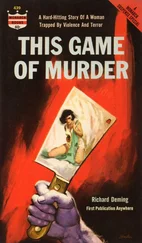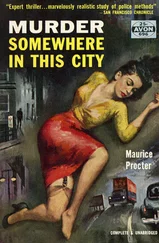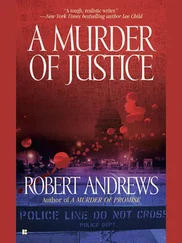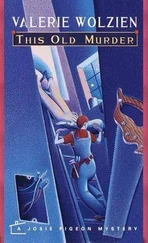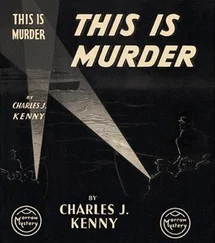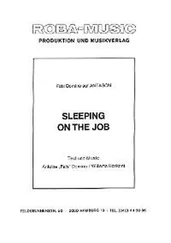Mr. Levy ran to the broken window and gazed down. “I think it’s too late for him. He has the look of the dead. But I’ll go down anyway to be sure. Johnny, could you call a doctor and the police? Take Miss Lipsky with you. She doesn’t look so good.”
* * * *
The investigation into the death of Elias Pearlstein lasted only two days. Not one person interviewed by the police had anything good to say about the man. Interestingly, his cousin and employer revealed that the evening before, he had fired Pearlstein for stealing funds from the business. If Rivka had known this, she never would have made her morning visit to him. The problems at the factory would have been resolved with his departure. The raised voices she had heard the previous evening were the voices of the cousins.
No one questioned Rivka’s account of Pearlstein’s death. On the contrary, she received comfort from her co-workers and more sympathetic treatment by the police than she had expected. After all, in the old country the police were to be feared and avoided at all costs. Reuben Mendelsohn hired a new foreman who treated the workers better. Life improved at the factory, but the tragic episode was not over for Rivka. It haunted her. She could not eat or sleep well. Her fellow workers whispered amongst themselves about her drawn and pale appearance. Her mother, alarmed at Rivka’s painful thinness, attempted to entice her with thick soups and warm breads. Rivka never smiled and always seemed preoccupied. Every time she entered Mendelsohn’s, she relived the horror of Pearlstein’s death and wondered if her inability to put the past behind her was a reflection of God’s displeasure with her deceit.
* * * *
On a cold and blustery December morning, Rivka and Monya made their way through the crowded streets to the factory.
“So tell me,” Monya said, “which of the world’s problems are you attempting to solve this morning?”
Rivka stopped walking, faced Monya, and with a sad expression spoke. “I do have some news for you, and I pray that you’ll understand. You know, I haven’t been myself since the day of Pearlstein’s death. I haven’t been able to put it behind me, and every day I relive those moments. I truly believe that it would be best for me to leave Mendelsohn’s and move on to a new job. I’ve been looking for other work and have found a place where I can sew better fabrics and get a higher wage. It’s a bit farther uptown near a park and a university, would you believe. This factory is in a large building with elevators. Such luxury!”
“That’s wonderful, Rivka. I shall miss seeing you every day, but we’ll see each other on the Sabbath and have so much news to share each week.”
“Yes,” Rivka said. “This will be a good change for me.”
* * * *
Rebecca grew silent.
“Nana, what a touching story. But how do you know the details? You told me your aunt Rivka died before you were born.”
“That’s true, Stacey. But my aunt kept a journal that was found among her belongings. Years ago, my mother passed it on to me. I’ve always felt it was far too personal to share, but I think it’s good for you to know this piece of your family’s history.”
Stacey was touched by her grandmother’s trust and had one more question to ask.
“Nana, how did Rivka die? Was she ill?”
“Ah. I didn’t quite finish the story, darling. The name of Rivka’s new employer was the Triangle Waist Company.”
Stacey’s eyes widened. “No! I’ve read a lot about that place. It was notorious. The Triangle Waist fire was one of the worst the city had seen. Over a hundred people, mostly young women, died there that day.”
“Actually, 146, to be exact. Including my aunt,” Rebecca said, wiping tears from her eyes. “The new place of employment Rivka thought would be so much better was just another sweatshop. So much for luxury!”
Harriette Sackler is a longtime member of the Malice Domestic Board of Directors and serves as grants chair. She is a past Agatha Award nominee for “Mother Love,” her story that appeared in Chesapeake Crimes II. Harriette’s writing background includes public relations and nonprofit fundraising materials. An avid pet lover, she is vice president of House with a Heart Senior Pet Sanctuary. Harriette lives in the D.C. suburbs with her husband, Bob, and their five pups. She has two married daughters and makes a point of thoroughly spoiling her two grandbabies, Ethan and Makayla.
THE LORD IS MY SHAMUS, by Barb Goffman
You’d think after all these years, I wouldn’t be nervous in his presence. Yet my sandals shook as I approached the swirling cloud.
“You asked to see me?” I crooked my head, trying-but failing-to spot him through the mist. Why was he always such an enigma?
“Yes.” His booming voice echoed. “I’m sending you back to Earth to do some investigating for me.”
“Investigating?”
“A man has died, and I’d like you to probe those who knew him best. Find out what happened.”
Now I know better than anyone that it’s not my place to question God. He has his reasons for what he does. But come on. He’s omniscient. Why would he need me to investigate anything for him?
“Umm…okay,” I said. “But don’t you already know what happened?”
He chuckled. “Well, yes, I do. But you of all people understand suffering and the need to know why it happens. So I want you to help this man’s family by looking into his death and encouraging the killer to admit his sins and repent.”
“The killer? You mean-”
“Yes. This, Job, is murder.”
* * * *
In a blinding flash of light, I found myself in a city. Based on the accents, I figured it was Manhattan-though it could’ve been Miami or Fort Lauderdale or, really, anywhere in South Florida. I took a moment to take in the sights. Tall buildings. Automobiles zipping by. And the women walking around immodestly in a state of undress. Bare arms and legs and, in a few cases, midriffs. I knew how the Earth had changed during my years in the afterworld-I like keeping up on things-but actually seeing it in person? Oy vey !
I glanced down and noticed that my apparel had changed, too. Now I was wearing modern clothes: khaki pants and a pale blue polo shirt. I combed my fingers through my hair. Shorn! My long flowing locks were gone. Cropped to my ears. I raked my fingers over my face and breathed a deep sigh of relief. I’d been allowed to keep my beard, though it apparently had been trimmed and combed. I know I shouldn’t care about my appearance, but after you’ve had the same look as many centuries as I have, you get kind of attached to it.
I turned left from the street corner. The avenue had been busy, but this side street was quieter. Trees and brownstones. A good place to think. My mind drifted back to God. He’d apparently changed my appearance so I’d fit in. And he’d dropped me in the victim’s neighborhood, I gathered, so I could get started straight away. But he couldn’t be bothered to tell me the killer’s name so I could quickly get him to confess and repent? That I had to figure out on my own?
I rolled my eyes. (Yes, I’d atone for that later.) Thousands of years had passed, but the Lord still liked to play his little games. I guess when you’re all-knowing, yanking my chain helps keep things interesting.
I stepped off the sidewalk, leaned against a nice shady tree, and took a few moments to try to think things through. I had no idea where to go. I patted my pockets. No money. Nowhere to spend the night. I didn’t even know the victim’s name. Hey, Lord, how ‘bout a little help down here?
Frustrated, I slapped my hands against my thighs and heard something crinkle. That right pocket had been empty just a moment ago. I reached in and pulled out two scraps of paper. The first one was an obituary for Bruce Goldenblatt, a real-estate investor who had died the previous Saturday, leaving behind a wife and three daughters. The second scrap had an address printed on it-for the brownstone right in front of me.
Читать дальше

